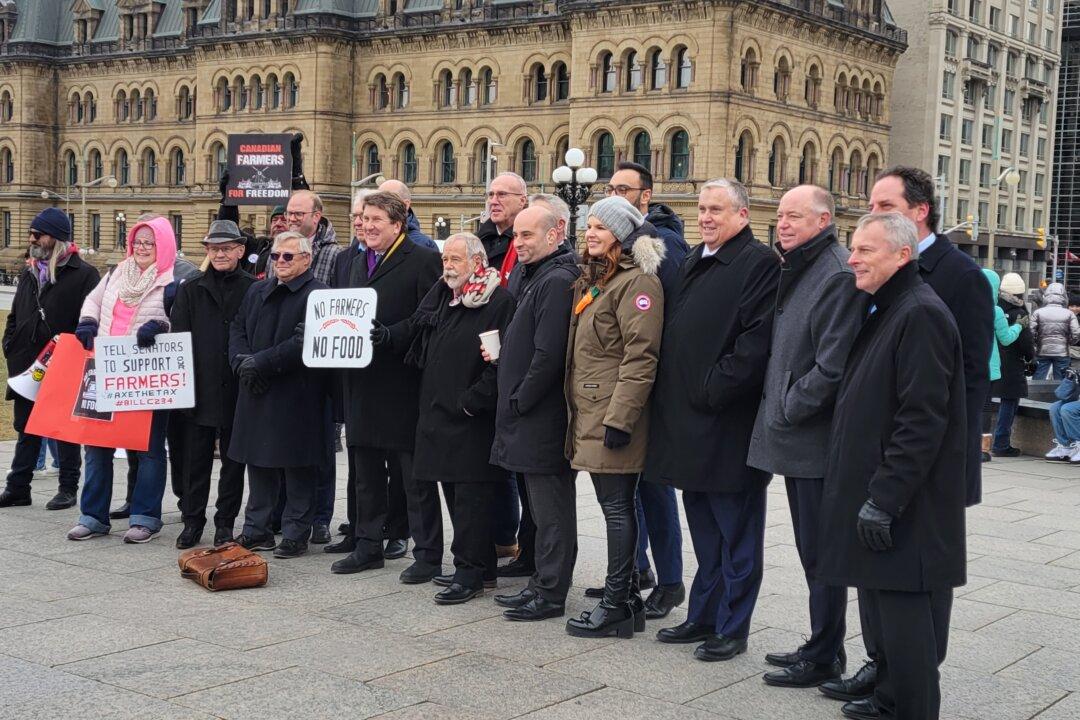Several farmers’ groups and a number of Conservative MPs and senators gathered on Parliament Hill and marched to the Senate to demand that senators pass Bill C-234, which would exempt some fuels used by farmers from the federal carbon tax.
“Our Canadian farmers are world leaders in sustainable and efficient food production. But after eight years of Justin Trudeau and his costly carbon tax, their livelihoods and their family farms are in jeopardy,” said Conservative MP and shadow Agriculture Minister John Barlow during a press conference on Nov. 21 before the march took place.





